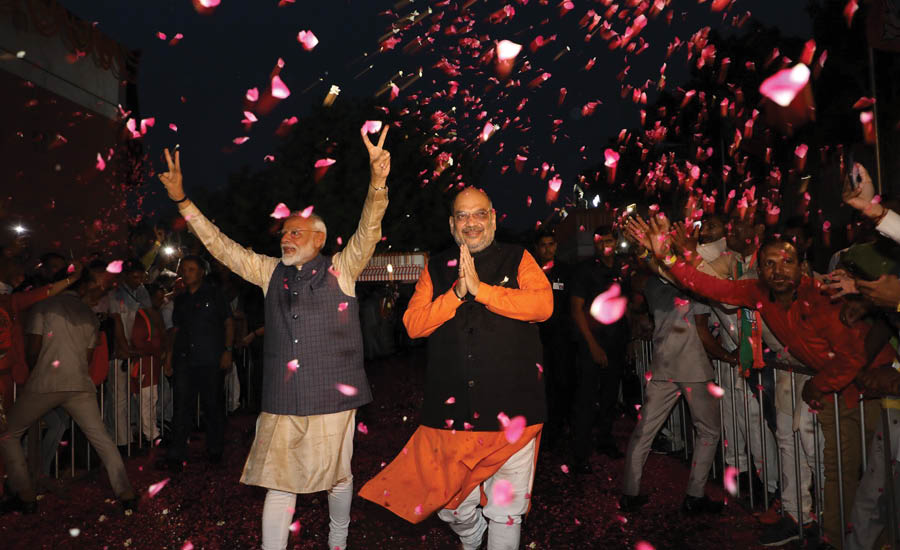Of the 10 states that comprise the Hindi belt, and have 225 seats between them, the BJP-led National Democratic Alliance won on 203 seats.
New Delhi: The Bharatiya Janata Party (BJP), which for long has been known as the party of only the Hindi belt, was successfully able to break this image in this election with the National Democratic Alliance (NDA) alliance candidates winning in 27 of the 29 states in the country.
Of the 10 states that comprise the Hindi belt, and have 225 seats between them, the BJP-led NDA won on 203 seats. This means that the alliance, which in total won on 353 seats, won on 150 or 42% of its seats in the non-Hindi belt states. The BJP on its own won on 303 seats.
The 10 states which the experts club as Hindi belt states include (number in bracket indicates seats won by the NDA out of the total seats): Bihar (39/40), Chhattisgarh (9/11), Haryana (10/10), Himachal Pradesh (4-4), Jharkhand (12/14), Madhya Pradesh (28/29), Rajasthan (25/25), Uttar Pradesh (64/80), Uttarakhand (5/5) and Delhi (7/7).
The rest of the 150 seats that were won by the NDA were distributed in the states of West Bengal (18/42), Arunachal (2/2), Assam (9/14), Chandigarh (1/1), Goa (1 /2), Gujarat (26/26), Odisha (8/21), Jammu and Kashmir (3/6), Karnataka (26/28), Maharashtra (41/48), Manipur (1 /2), Nagaland (1/1 Nationalist Democratic Progressive Party), Punjab (4/13), Sikkim (1/1, Sikkim Krantikari Morcha), Tamil Nadu (1/38 All India Anna Dravida Munnetra Kazhagam), Telangana (4/17), Tripura (2/2).
A Union minister said that the pan-India recognition that the NDA got would ensure that none of the states are left behind in development.
“The responsibility that has come with this feat is enormous. Now we have to realise that we are not a party that has electorates in a few states. Whatever policies that we make will have to be made keeping the entire country in mind. We have, in this election, become the party for Muslims, Christians, and Sikhs. Much has been said about how we achieved this, slowly and gradually, but our party leaders now need to expand their viewpoint on several issues. The Prime Minister’s call for ‘Sabka Saath Sabka Vikas’ will be executed more vigorously now,” he said.
According to him this “achievement” said a lot about the party’s changed approach of doing things in the last five years. “We were earlier called a Hindutva party. Now, we are doing well in every state and regional parties are associating with us. Taking in the Janata Dal United (JDU) along in Bihar has helped us both. Because of our association with Shiv Sena, its cadre now has to act more responsibly rather than pandering to parochial desires. Leaders of northeastern states now feel that they too are a part of a national political alliance due to which they also feel more connected to the rest of India,” he added.

